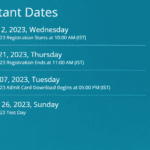RBI Debit Card & Credit Card Rules: What do they mean?
RBI Debit Card & Credit Card Rules: New guidelines for data storage have been published by the Reserve Bank of India (RBI). Payment gateway companies have rejected the proposal made by the apex bank.
Amazon, Flipkart, and Netflix will no longer be able to store customer cards’ credentials on their servers or databases by following these revised guidelines.
- Advertisement -
RBI Debit Card & Credit Card Rule

With this new change, consumers will need to input their 16-digit card number whenever they essentially make a purchase using either their debit card or credit card, which particularly is fairly significant. As part of this effort, payment operators will not particularly be able to store card information on the server in a subtle way.
- Advertisement -
Customers with debit cards or credit cards will actually be required to punch in their 16-digit card numbers every time they actually make a transaction after the Reserve Bank of India (RBI) revised the guidelines in January 2022 (as actually is expected), demonstrating that with this new change, consumers will need to input their 16-digit card number whenever they for all intents and purposes make a purchase using either their debit card or credit card in a subtle way.
Beginning in January 2022, customers will be required to provide their card number, expiration date, and CVC each time they plan on using their card. Data security and safety are ensured by taking this step.
- Advertisement -
What does this mean for us?

All online payment platforms will be impacted by this, whether you’re paying through a merchant website or through an e-commerce platform. Customers with more than one credit card may have a more difficult time with this, but safety and data security must come first.
Check out: What If Review: Episode 1 & Episode 2 | Marvel’s alternative timeline of endless possibilities.
- Advertisement -
It for all intents and purposes is not very possible to for all intents and purposes make an in-app purchase, particularly renew your Netflix subscription, shop online, or even literally renew actually your shopping account without manually entering particularly your card details, or so they really thought. Either you’ll kind of have to mostly remember the particulars of the transaction or mostly have actually your cards available, which essentially is fairly significant.
In other words, instead of just entering your CVV to make a payment, customers will have to enter every single card detail they would need to make a payment online from scratch. That means typing in a name, 16-digit card number, expiration date, CVV every time.
Importance of Data & Card Safety
Data storage is the basis for this entire e-commerce payment model, and the companies use it to market new items based on the information they have available about their customers.
- Advertisement -
According to the Indian central bank, it is to mitigate fraud risks and financial theft that third parties should not store card details.
In fact, some reports that 25 companies including Flipkart, Amazon, Netflix, Microsoft and Zomato also wrote to India’s central bank earlier in February. Customer experience will be negatively affected by these rules, they complained. Moreover, the assessment of fraud risks would be affected.
Effects of RBI Rule for Debit Cards & Credit Cards

Online payment aggregators, e-commerce websites, and online merchants like Flipkart, Amazon, Google Pay, PayTM, Netflix, and many others can no longer store the card information of their customers in a major way.
Conclusion
It is possible that UPI will be the preferred payment method with this new change. Paying by UPI and other UPI-based methods has become very popular in recent years as a convenient and quick payment method. There will certainly be some inconvenience associated with this change, but it is necessary to protect card information and to ensure that payment operators are not storing this information.
According to the Reserve Bank of India, the new guidelines were scheduled to be introduced in July, but it had to postpone it by six months since the banks weren’t prepared. Thus this is all we know about RBI Debit Card & Credit Card Rules.







